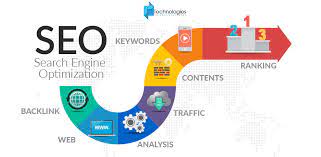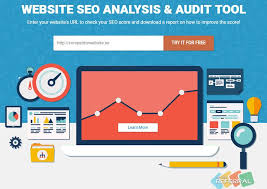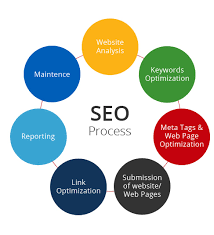Maximising Online Visibility: Mastering Google Search Optimization
Google Search Optimization: A Guide to Boost Your Online Visibility
In today’s digital landscape, appearing at the top of Google search results is crucial for businesses looking to enhance their online visibility. With millions of websites competing for attention, mastering Google search optimization techniques is essential to stand out from the crowd.
Understanding Google Search Optimization
Google search optimization, commonly known as SEO, involves a series of strategies aimed at improving a website’s ranking in search engine results pages (SERPs). By optimising your website according to Google’s algorithms and best practices, you increase the likelihood of your site being displayed prominently when users search for relevant keywords.
Key Components of Google Search Optimization
Effective Google search optimization encompasses various components, including:
- Keyword Research: Identifying relevant keywords that your target audience is likely to use when searching for products or services.
- On-Page SEO: Optimising your website’s content, meta tags, headings, and images to align with targeted keywords.
- Off-Page SEO: Building high-quality backlinks from reputable websites to improve your site’s authority and credibility.
- User Experience (UX): Ensuring that your website is user-friendly, mobile-responsive, and provides valuable content to visitors.
- Technical SEO: Addressing technical aspects such as site speed, crawlability, and structured data markup to enhance search engine visibility.
Tips for Improving Your Google Search Ranking
To boost your online visibility and climb the ranks in Google search results, consider implementing the following tips:
- Create High-Quality Content: Publish informative and engaging content that addresses the needs and interests of your target audience.
- Optimise Meta Tags: Craft compelling meta titles and descriptions that accurately reflect the content on each page of your website.
- Become Mobile-Friendly: Ensure that your website is optimised for mobile devices to cater to users accessing it on smartphones and tablets.
- Earn Quality Backlinks: Seek opportunities to earn backlinks from authoritative websites within your industry or niche.
- Analyse Performance Metrics: Monitor key performance indicators such as organic traffic, bounce rate, and keyword rankings to track the effectiveness of your SEO efforts.
The Benefits of Effective Google Search Optimization
By investing time and resources into Google search optimization, businesses can reap numerous benefits, including increased organic traffic, improved brand visibility, higher conversion rates, and a competitive edge in the digital marketplace. With a strategic approach to SEO, you can position your website for long-term success and sustainable growth online.
Mastering Google Search Optimization: Essential Insights for Enhancing Online Visibility
- What is Google search optimization?
- Why is Google search optimization important for businesses?
- How does keyword research impact Google search optimization?
- What are the key differences between on-page and off-page SEO for Google search optimization?
- How can user experience (UX) influence Google search ranking?
- What are some common mistakes to avoid when implementing Google search optimization strategies?
What is Google search optimization?
Google search optimization, often referred to as SEO, is a fundamental practice in digital marketing aimed at enhancing a website’s visibility and ranking on Google search engine results pages (SERPs). It involves a strategic approach to improving a website’s content, structure, and relevance to specific keywords or phrases that users commonly search for. By adhering to Google’s algorithms and best practices, businesses can increase their chances of appearing higher in search results, driving organic traffic to their site and ultimately boosting online presence and engagement with their target audience.
Why is Google search optimization important for businesses?
In the realm of digital marketing, the question of why Google search optimization is vital for businesses frequently arises. The significance lies in the fact that a strong presence on Google can significantly impact a business’s online visibility and success. By optimising their websites according to Google’s algorithms and best practices, businesses can improve their search engine rankings, attract more organic traffic, enhance brand awareness, and ultimately drive conversions. In a highly competitive online landscape, prioritising Google search optimization is essential for businesses looking to stand out, reach their target audience effectively, and achieve sustainable growth in the digital realm.
How does keyword research impact Google search optimization?
Keyword research plays a pivotal role in Google search optimization by guiding the selection of relevant terms and phrases that users are likely to input when searching for information online. By conducting thorough keyword research, website owners can identify high-value keywords that align with their target audience’s search intent. Integrating these keywords strategically into website content, meta tags, and other on-page elements helps improve visibility in Google search results. Ultimately, effective keyword research enables businesses to enhance their online presence, attract qualified traffic, and increase the likelihood of ranking higher on SERPs for valuable search queries.
What are the key differences between on-page and off-page SEO for Google search optimization?
When delving into Google search optimization, understanding the distinctions between on-page and off-page SEO is crucial. On-page SEO primarily focuses on optimising elements within a website itself, such as content quality, meta tags, and internal linking structure. In contrast, off-page SEO pertains to external factors like backlinks from other reputable sites, social media signals, and online reputation management. While on-page SEO enhances the relevance and quality of a website’s content for search engines, off-page SEO builds authority and credibility through external validation. Both components play integral roles in boosting a website’s visibility and ranking on Google search results pages.
How can user experience (UX) influence Google search ranking?
User experience (UX) plays a significant role in influencing Google search ranking. Google prioritises websites that offer a positive and seamless user experience, as it aims to deliver the most relevant and valuable results to its users. Factors such as site speed, mobile responsiveness, intuitive navigation, and engaging content all contribute to a website’s UX. By enhancing these aspects of UX, websites can improve visitor satisfaction, reduce bounce rates, and increase dwell time—all of which are metrics that Google considers when determining search rankings. Ultimately, prioritising user experience not only benefits website visitors but also boosts a site’s visibility and performance in Google search results.
What are some common mistakes to avoid when implementing Google search optimization strategies?
When implementing Google search optimization strategies, it’s crucial to steer clear of common mistakes that could hinder your efforts to improve online visibility. Some key errors to avoid include keyword stuffing, neglecting mobile optimization, overlooking the importance of quality content, ignoring the impact of page speed on user experience, and failing to monitor and adjust your SEO strategy based on performance metrics. By sidestepping these pitfalls and adhering to best practices, you can maximise the effectiveness of your Google search optimization efforts and enhance your website’s ranking in search engine results pages.









